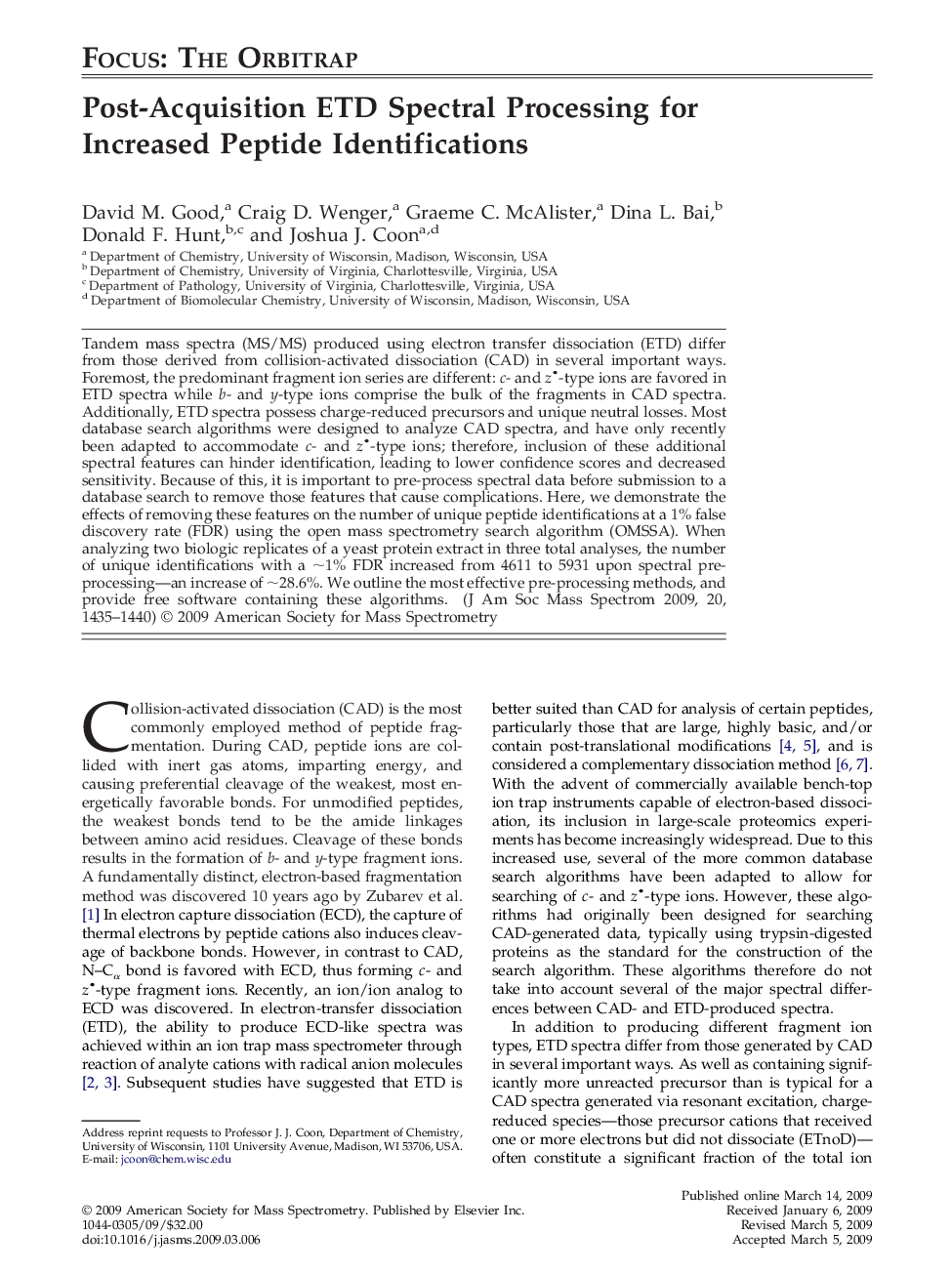| کد مقاله | کد نشریه | سال انتشار | مقاله انگلیسی | نسخه تمام متن |
|---|---|---|---|---|
| 1195217 | 964297 | 2009 | 6 صفحه PDF | دانلود رایگان |

Tandem mass spectra (MS/MS) produced using electron transfer dissociation (ETD) differ from those derived from collision-activated dissociation (CAD) in several important ways. Foremost, the predominant fragment ion series are different: c- and z
• -type ions are favored in ETD spectra while b- and y-type ions comprise the bulk of the fragments in CAD spectra. Additionally, ETD spectra possess charge-reduced precursors and unique neutral losses. Most database search algorithms were designed to analyze CAD spectra, and have only recently been adapted to accommodate c- and z
• -type ions; therefore, inclusion of these additional spectral features can hinder identification, leading to lower confidence scores and decreased sensitivity. Because of this, it is important to pre-process spectral data before submission to a database search to remove those features that cause complications. Here, we demonstrate the effects of removing these features on the number of unique peptide identifications at a 1% false discovery rate (FDR) using the open mass spectrometry search algorithm (OMSSA). When analyzing two biologic replicates of a yeast protein extract in three total analyses, the number of unique identifications with a ∼1% FDR increased from 4611 to 5931 upon spectral pre-processing—an increase of ∼28.6%. We outline the most effective pre-processing methods, and provide free software containing these algorithms.
Graphical AbstractRemoval of interfering, non-informative spectral features from ETD-generated spectra increases peptide identifications.Figure optionsDownload high-quality image (122 K)Download as PowerPoint slide
Journal: Journal of the American Society for Mass Spectrometry - Volume 20, Issue 8, August 2009, Pages 1435–1440